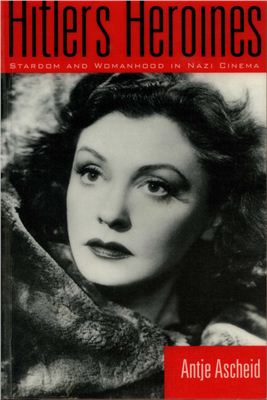Publisher: Temple University Press, Philadelphia, 2003. 240 pages.
Language: English.
The careers of Kristina S?derbaum, Lilian Harvey, and Zarah Leander speak to the Nazis' need to address and contain the "woman question", to redirect female subjectivity and desires to self sacrifice for the common good (i.e., national socialism). Hollywood's new women and glamorous dames were out; the German wife and mother were in. The roles and star personas assigned to these actresses, though intended to entertain the public in a politically conformist way, point to the difficulty of yoking popular culture to ideology.
Probing into the contradictory images of womanhood that surfaced in these films, Antje Ascheid shows how Nazi heroines negotiated the gender conflicts that confronted contemporary women.
The careers of Kristina S?derbaum, Lilian Harvey, and Zarah Leander speak to the Nazis' need to address and contain the "woman question", to redirect female subjectivity and desires to self sacrifice for the common good (i.e., national socialism). Hollywood's new women and glamorous dames were out; the German wife and mother were in. The roles and star personas assigned to these actresses, though intended to entertain the public in a politically conformist way, point to the difficulty of yoking popular culture to ideology.
Probing into the contradictory images of womanhood that surfaced in these films, Antje Ascheid shows how Nazi heroines negotiated the gender conflicts that confronted contemporary women.

